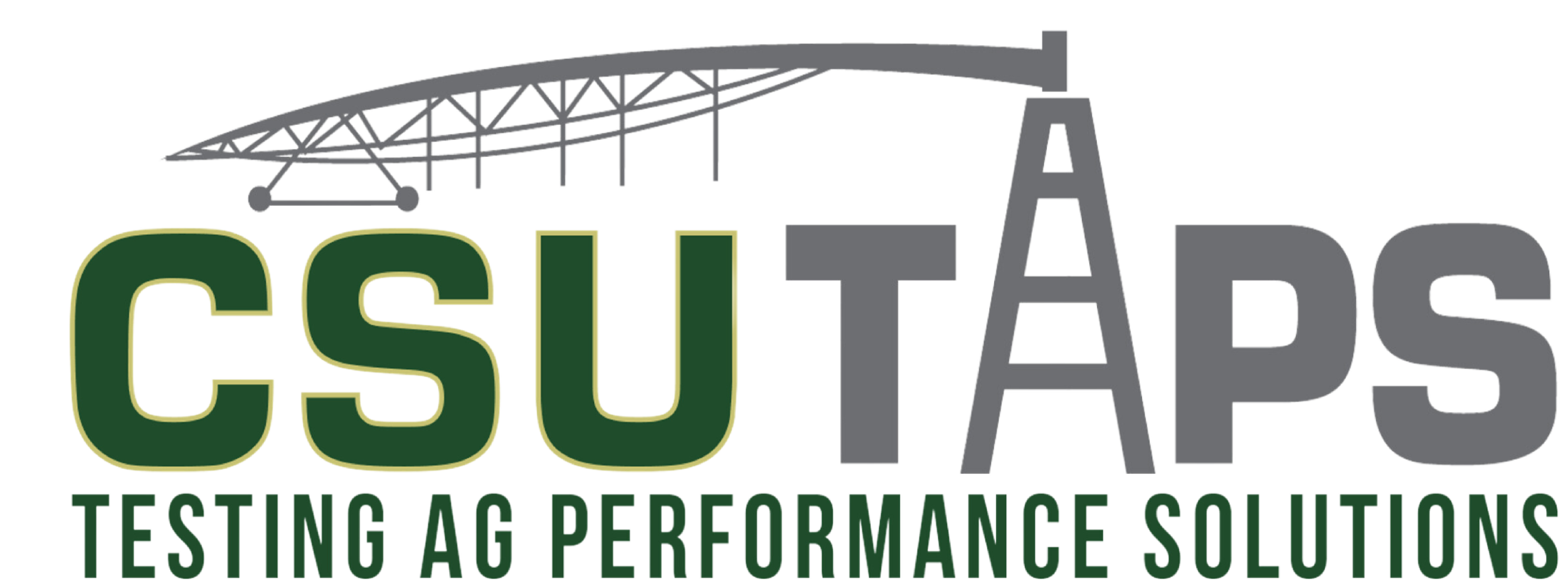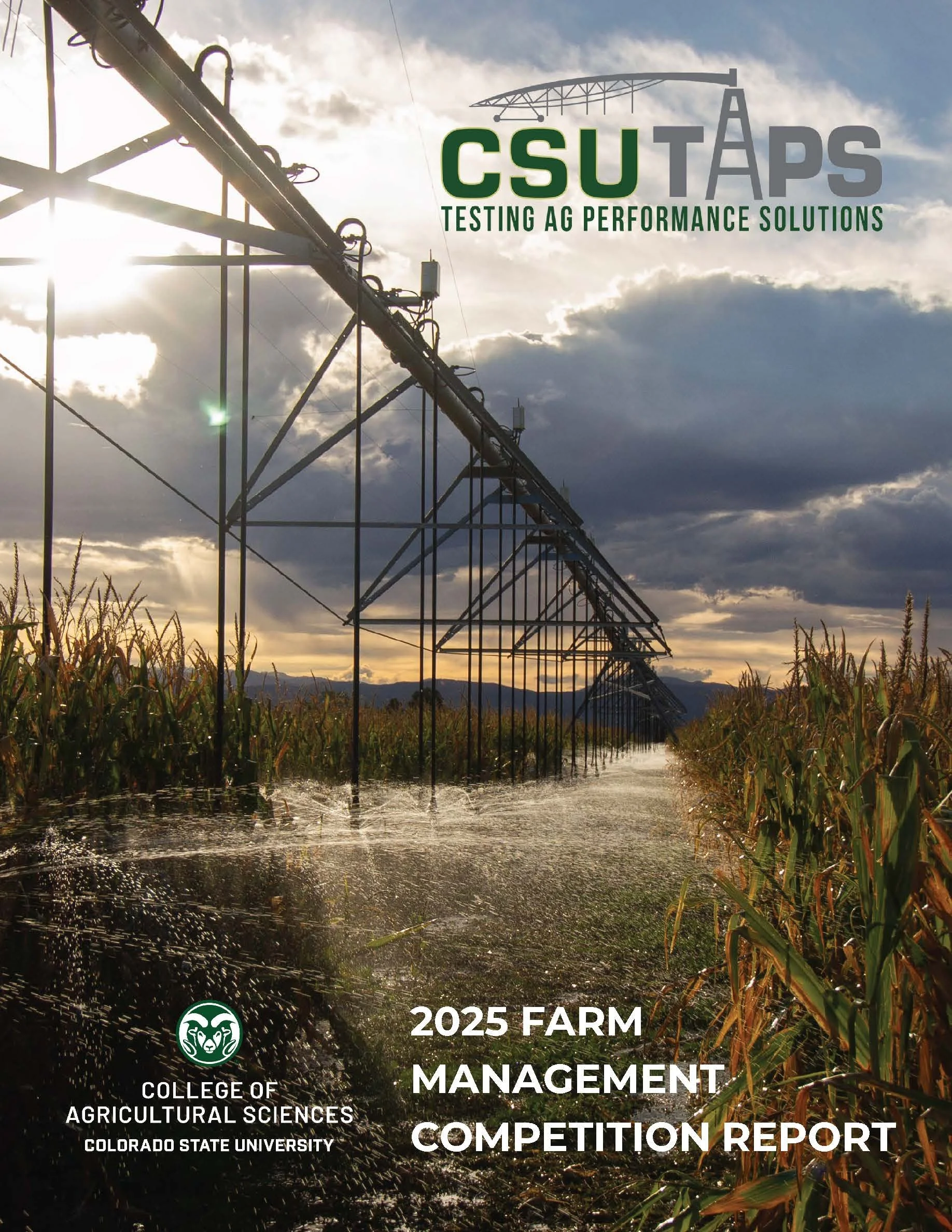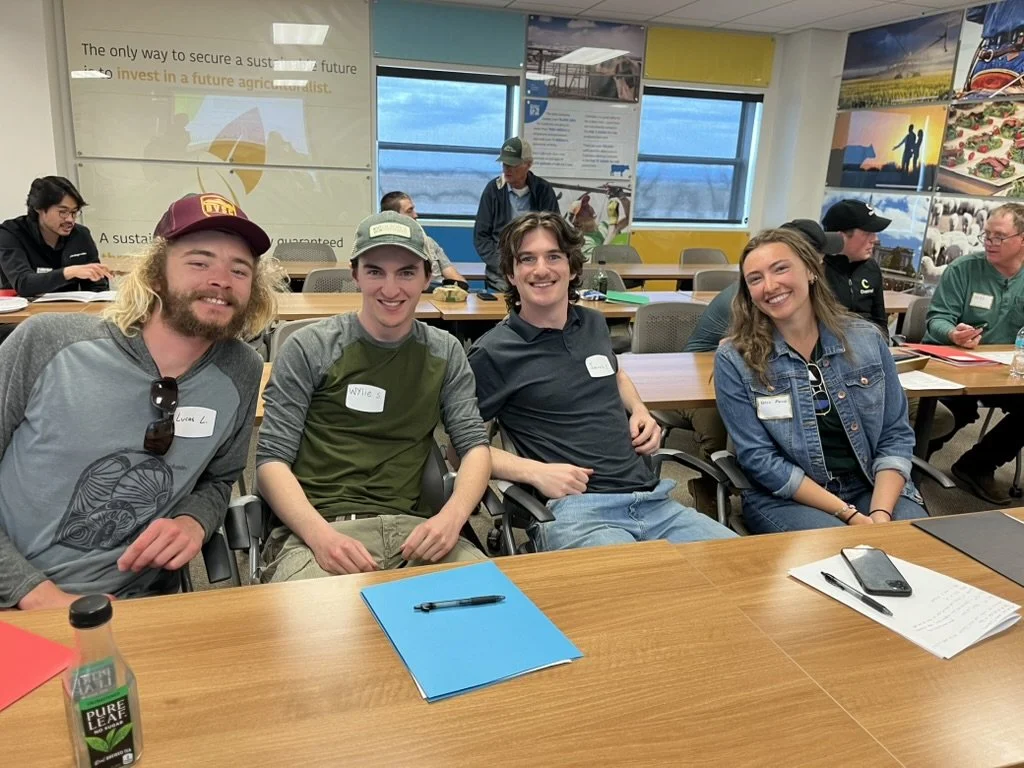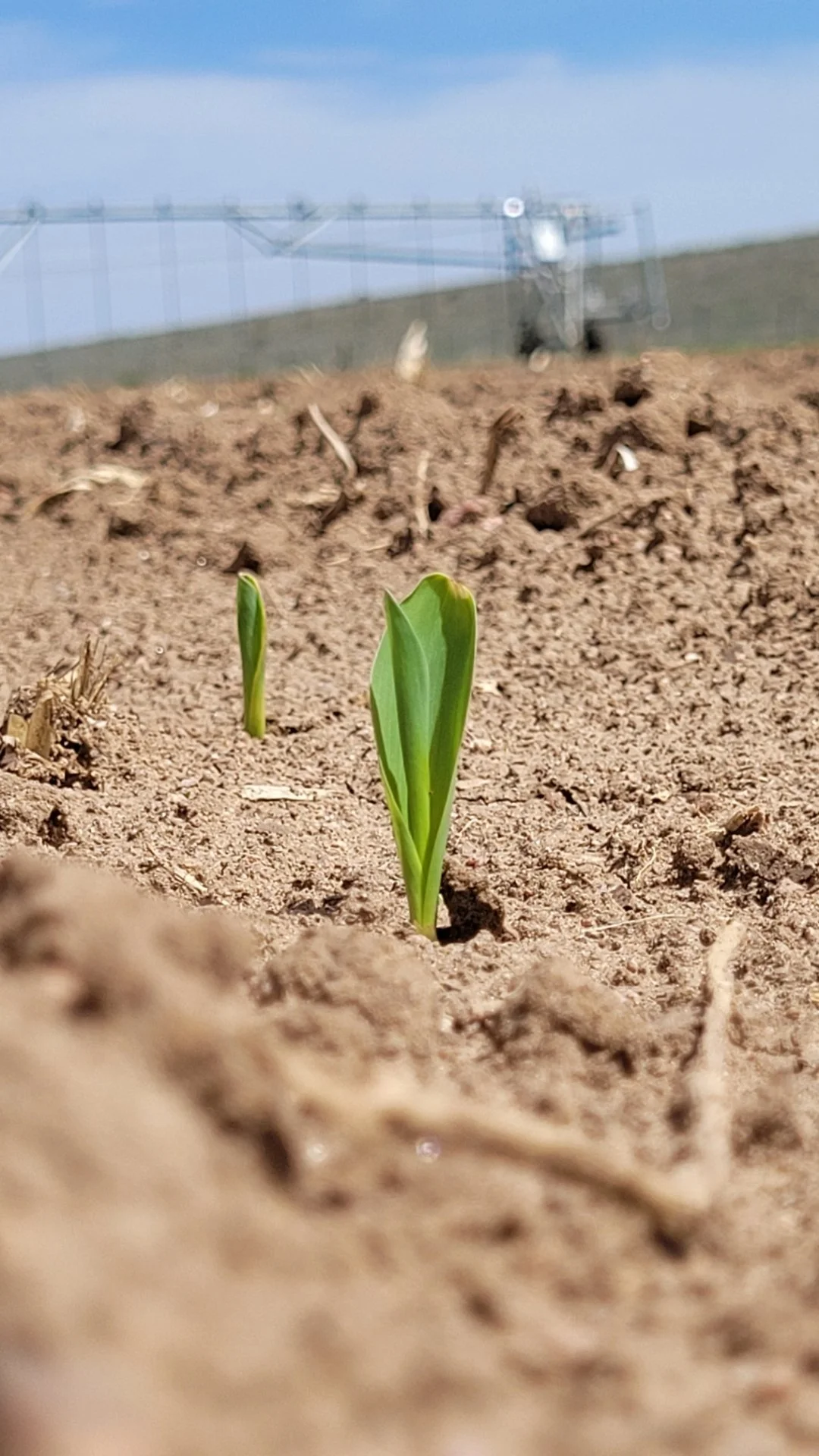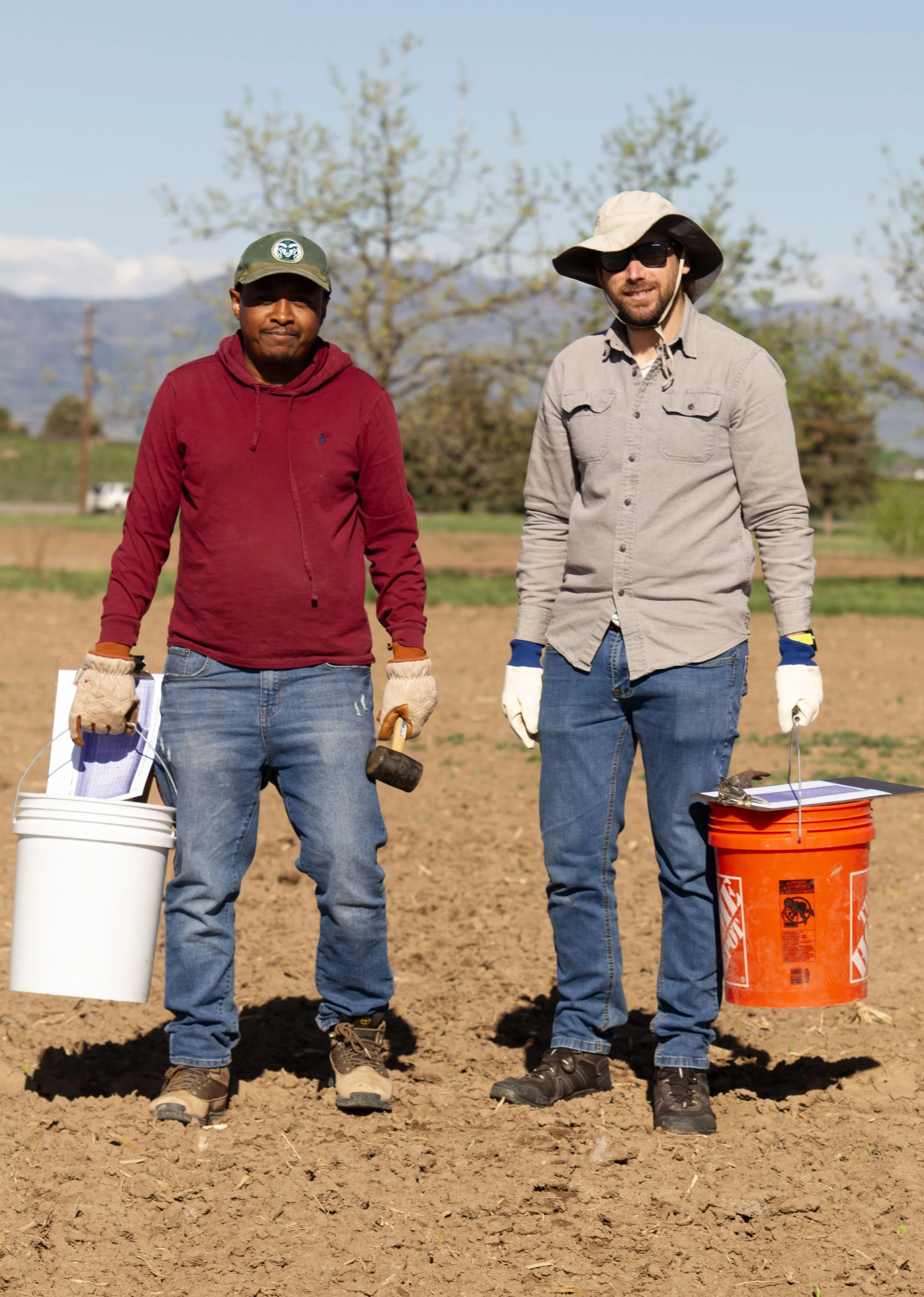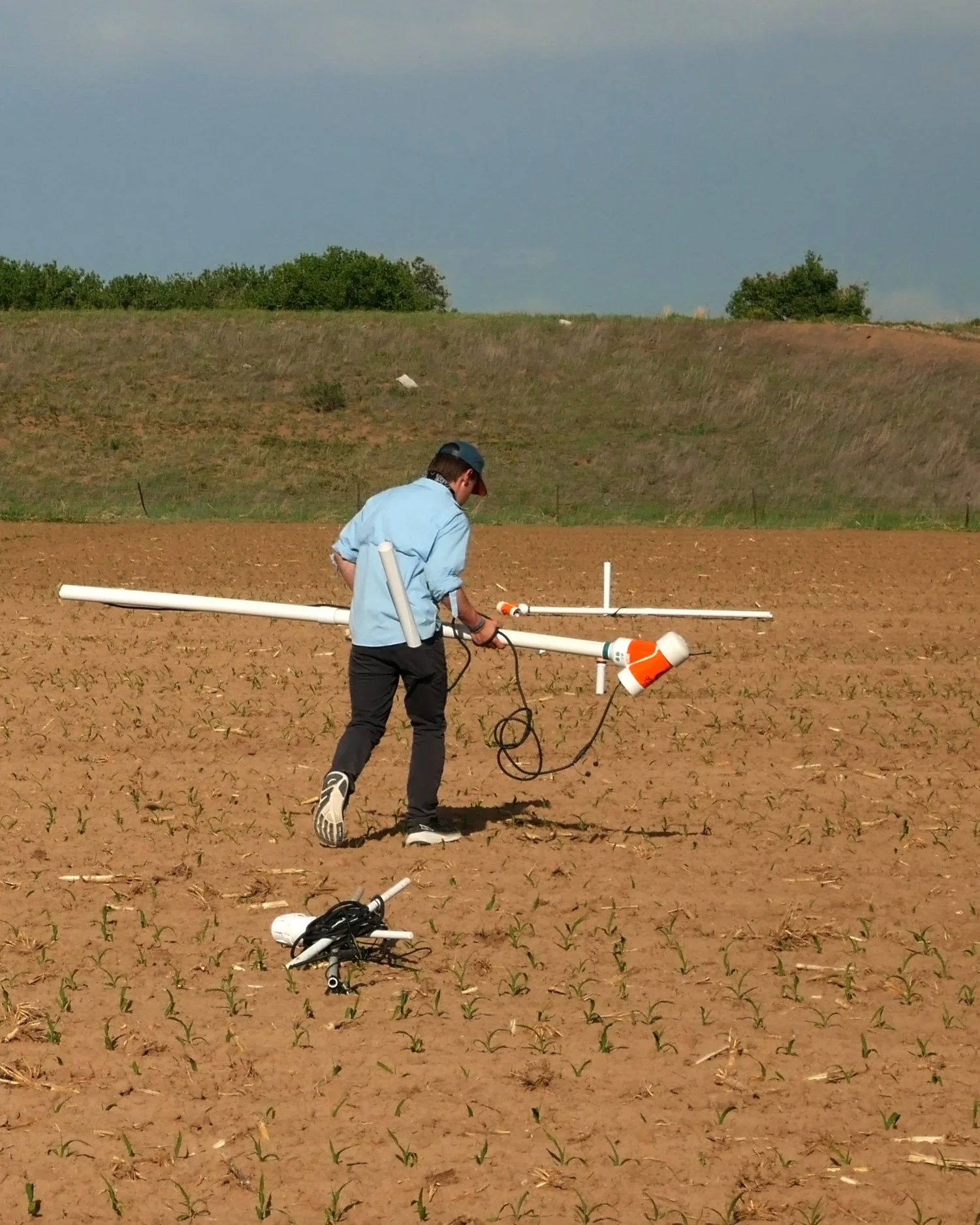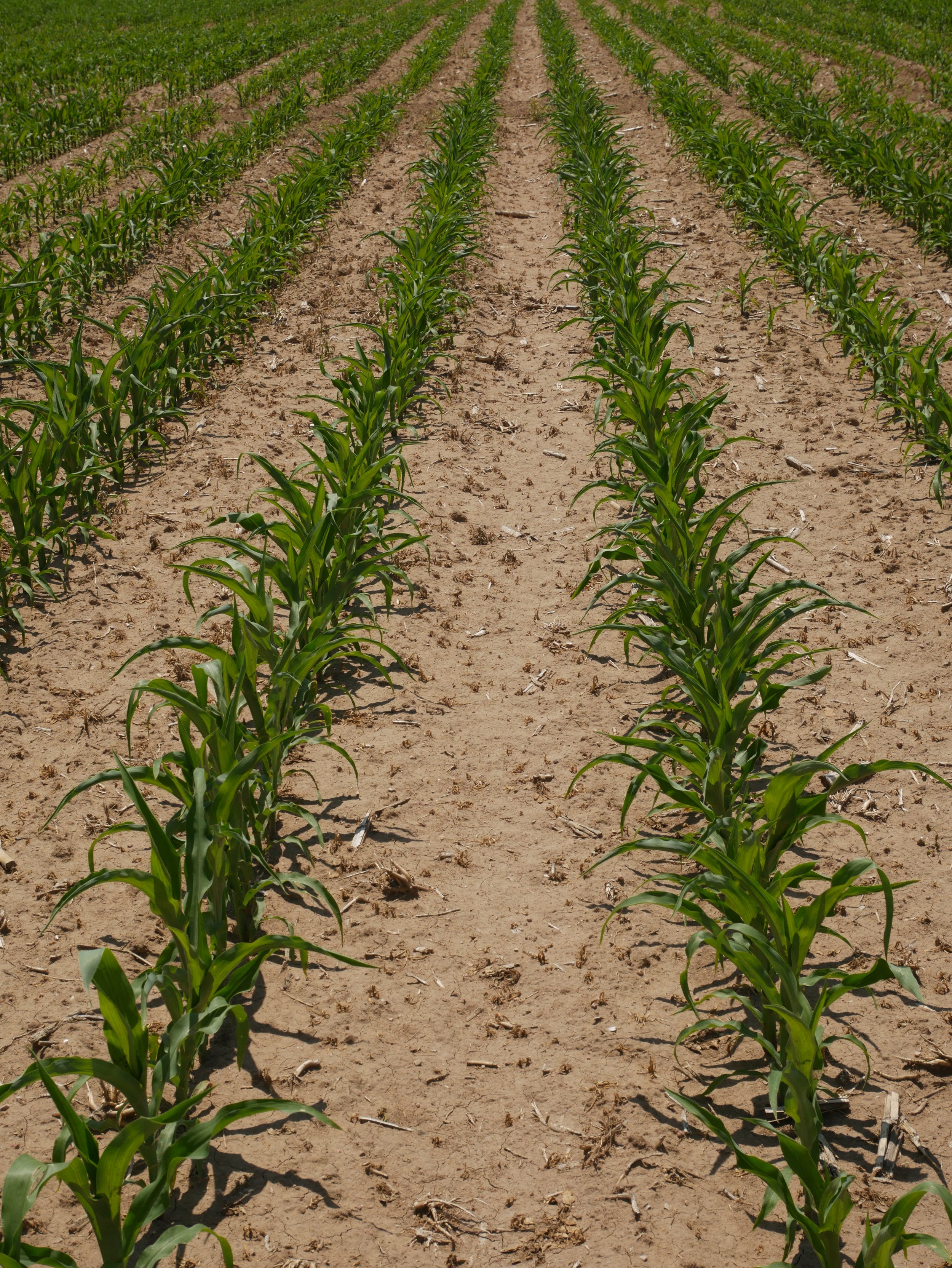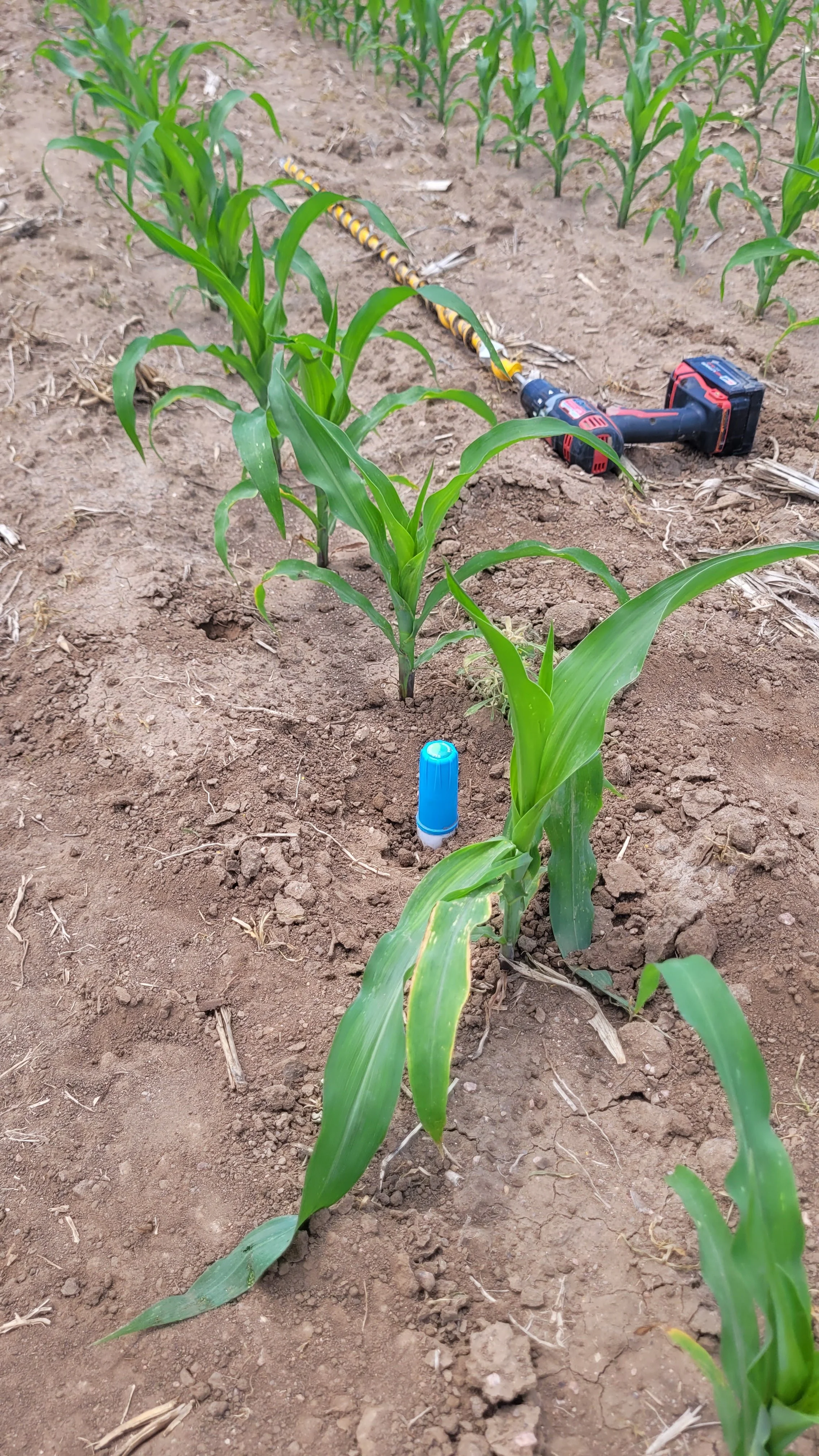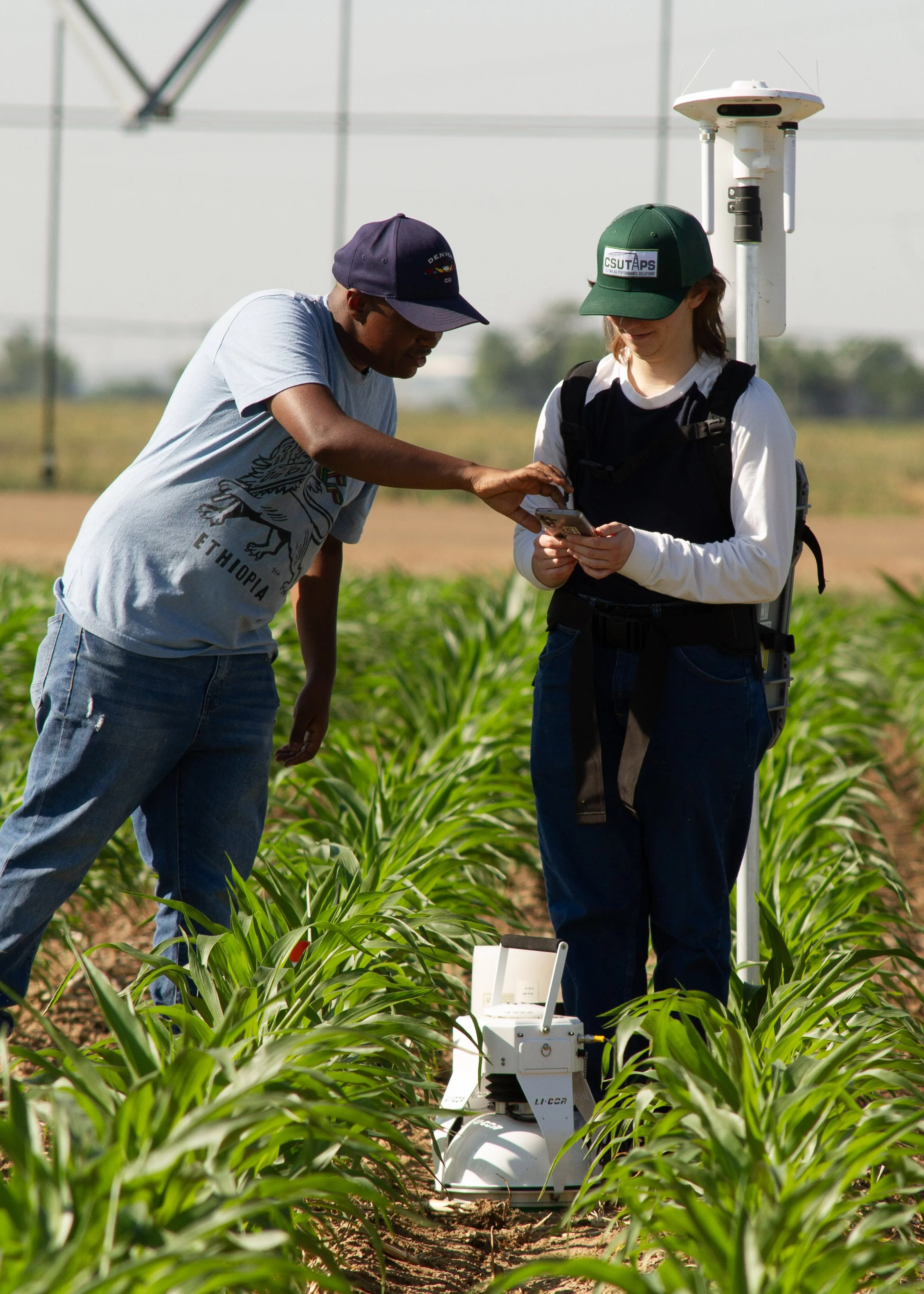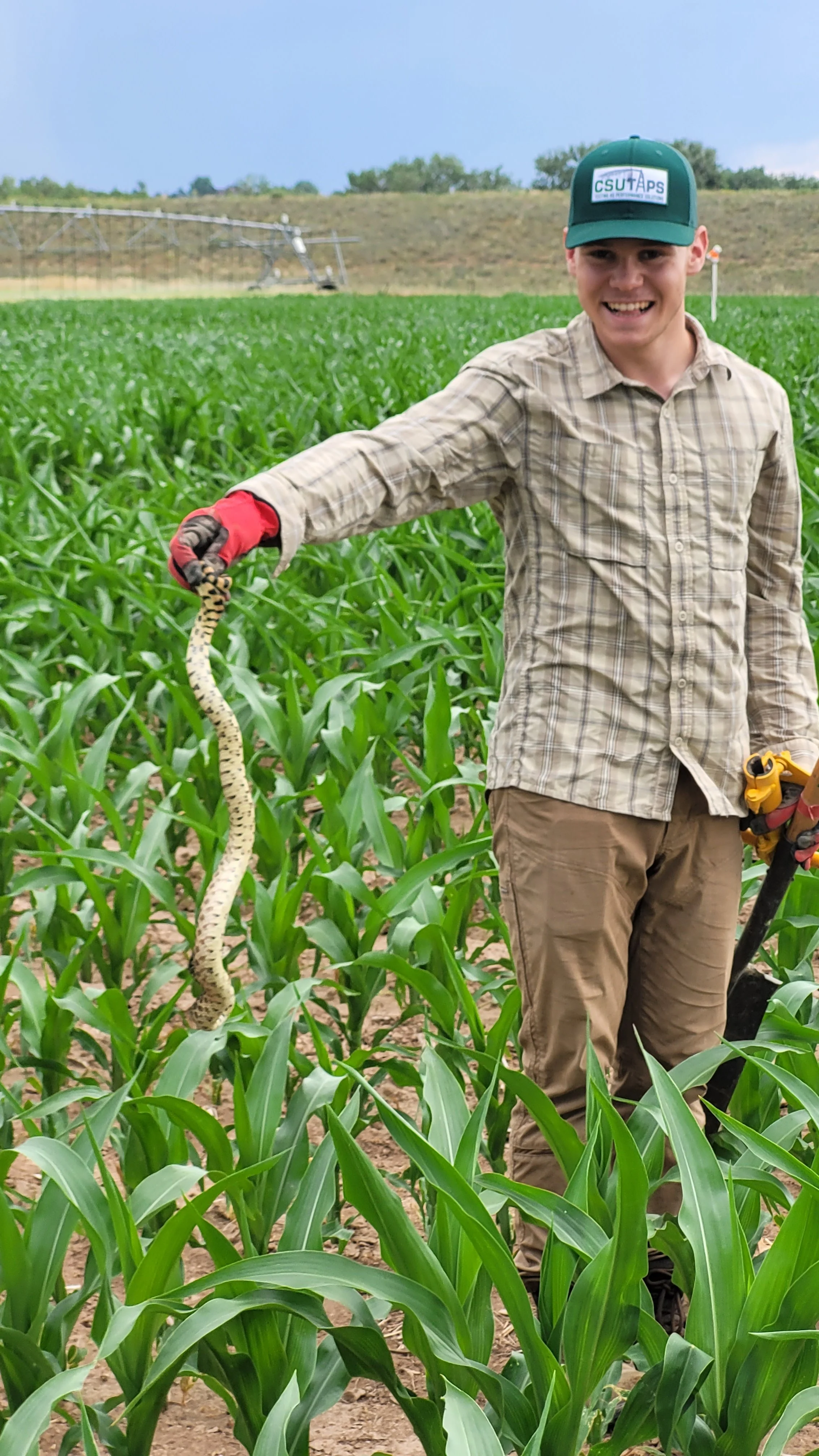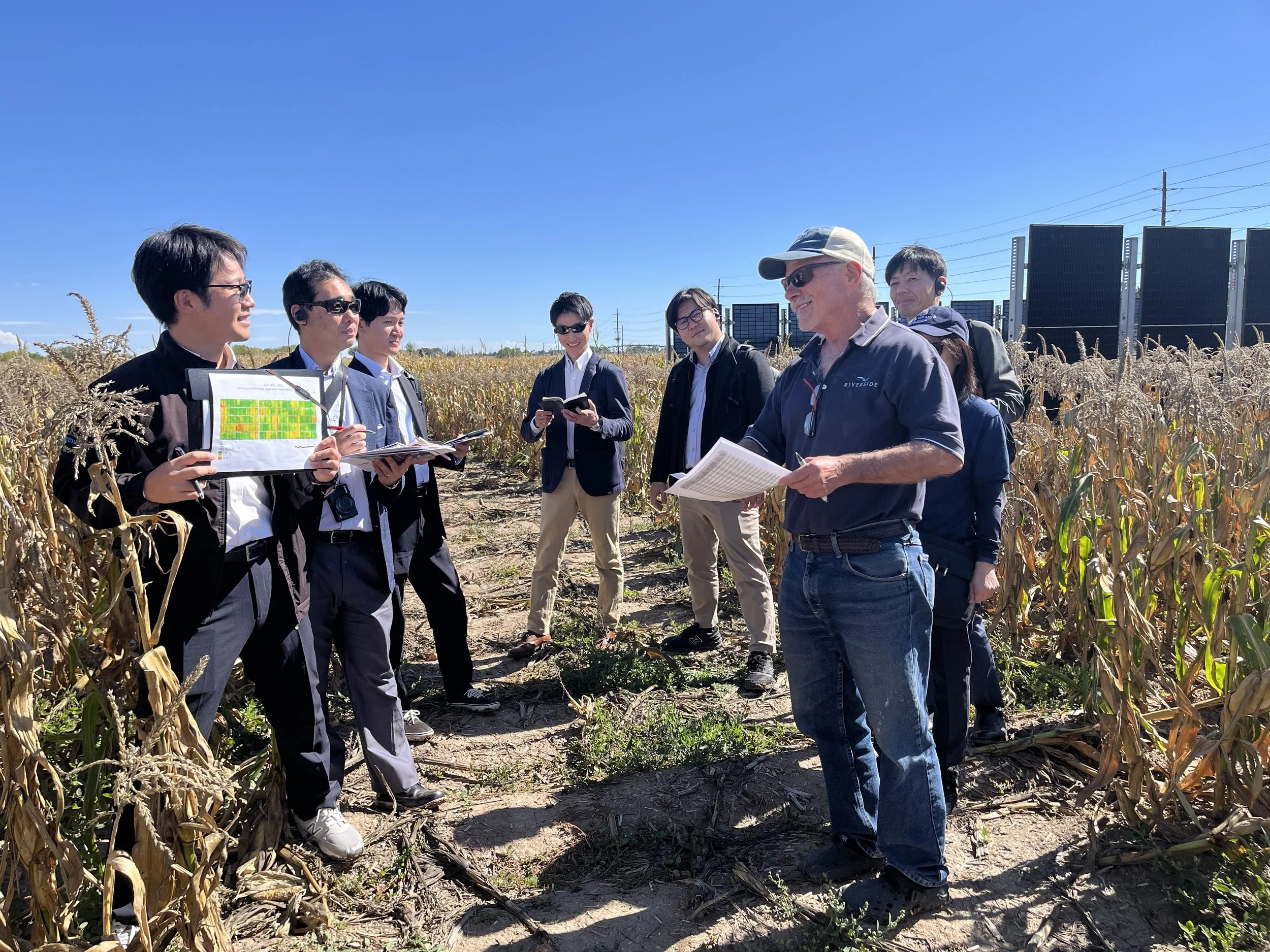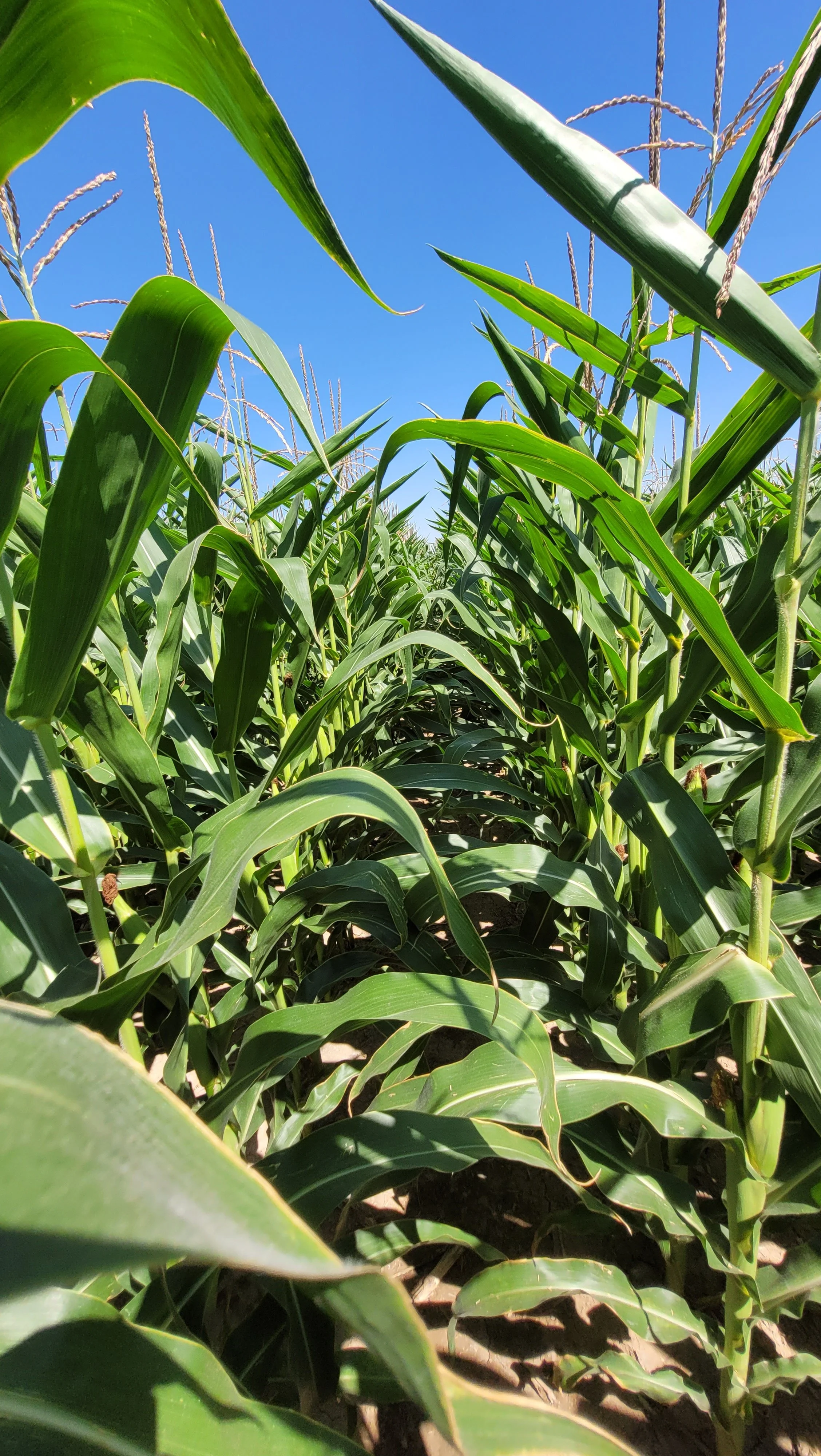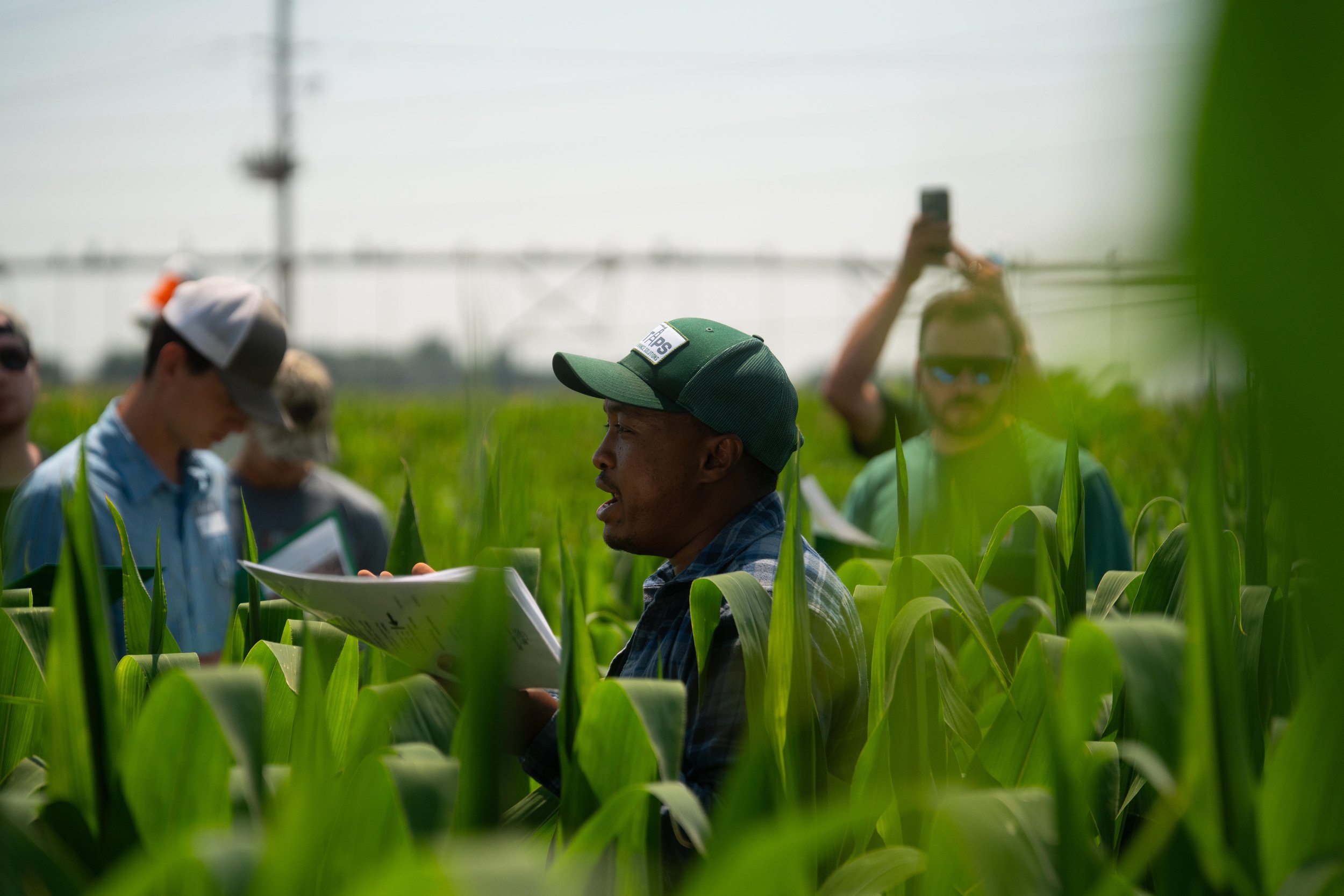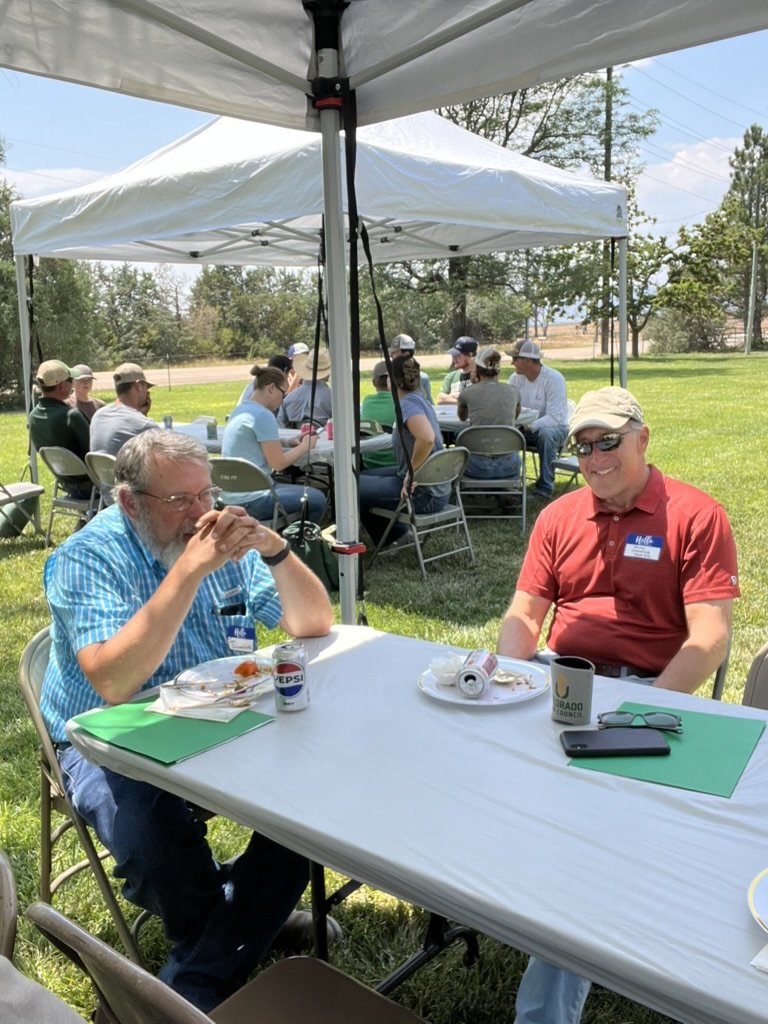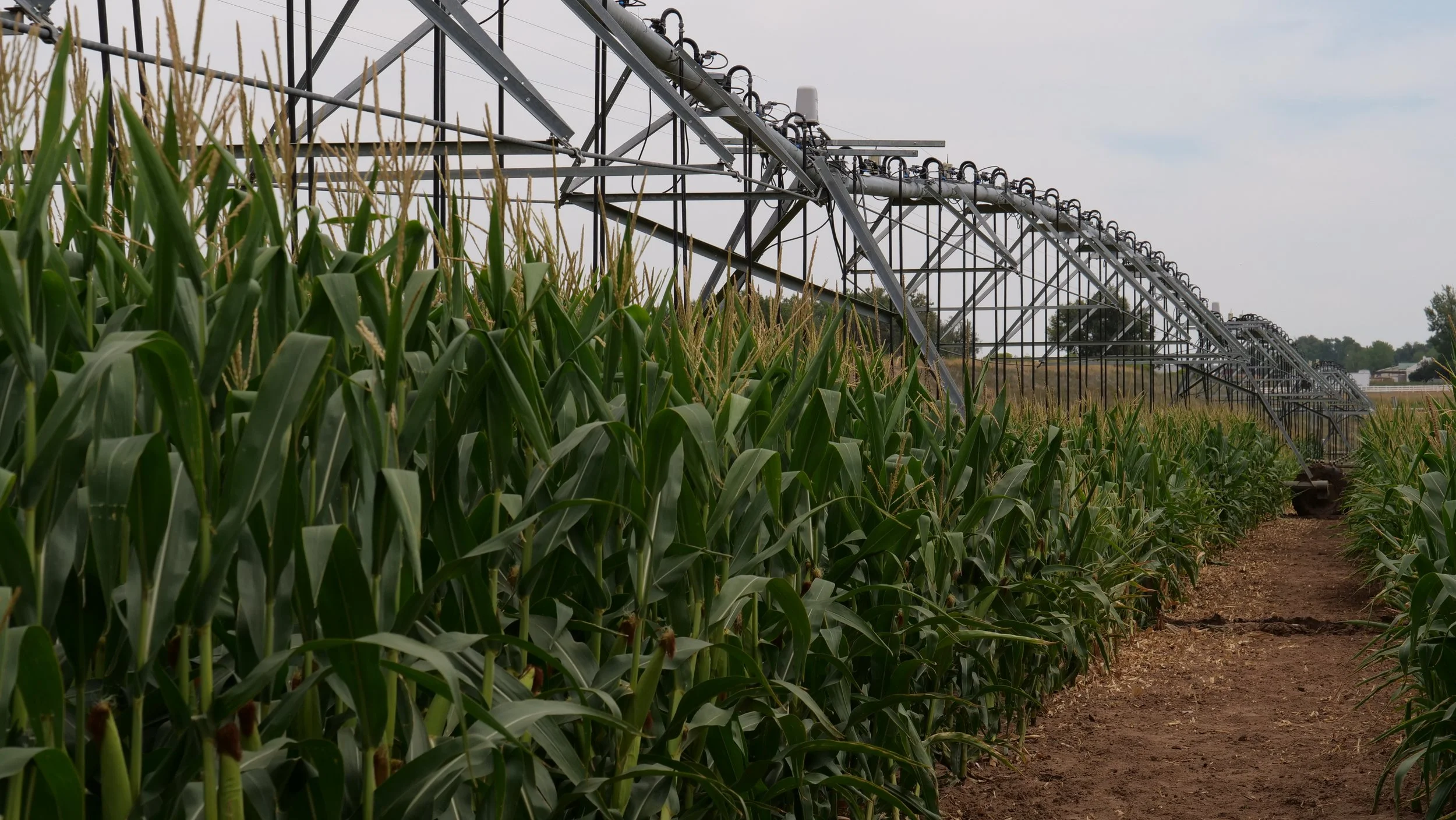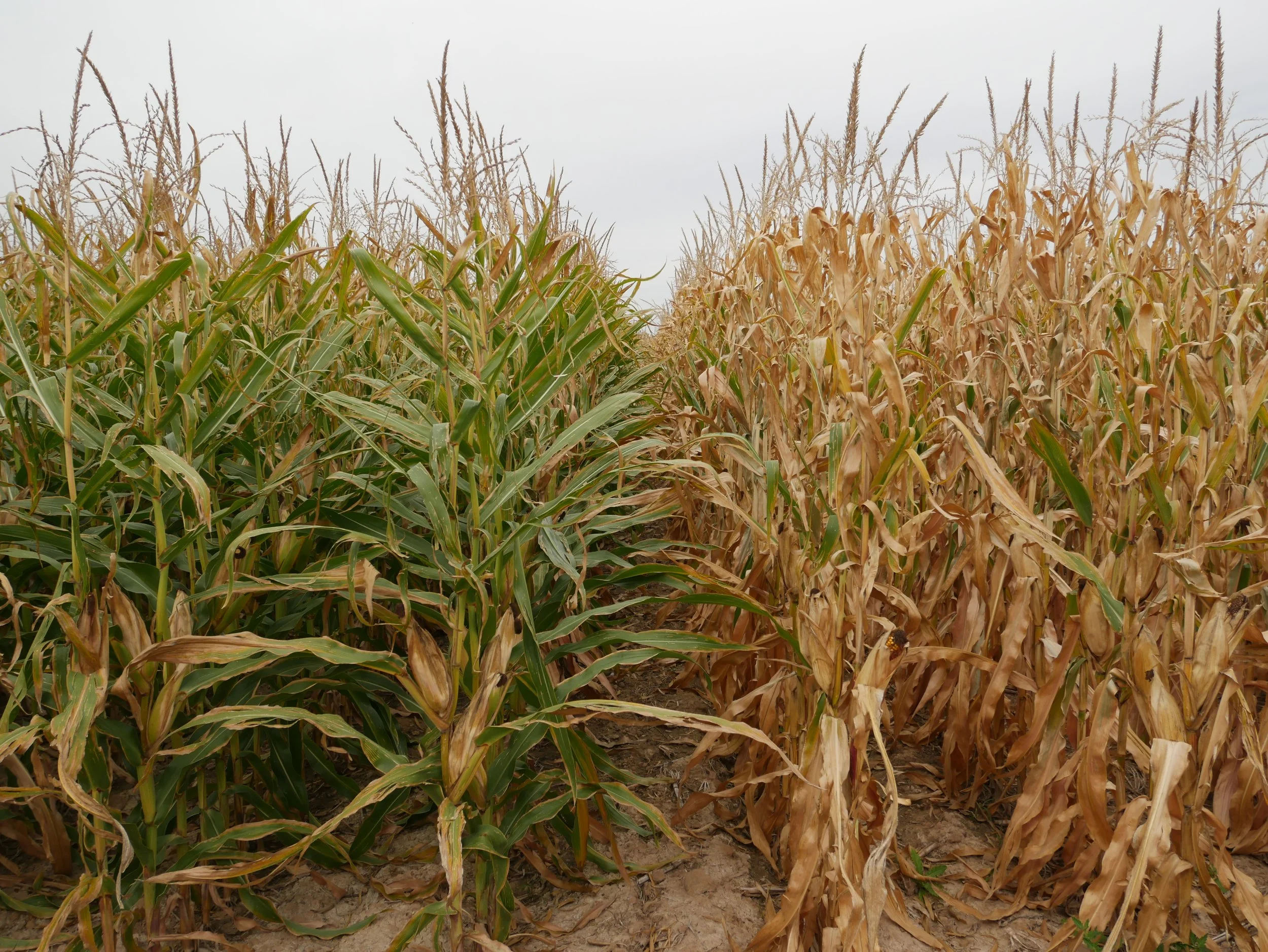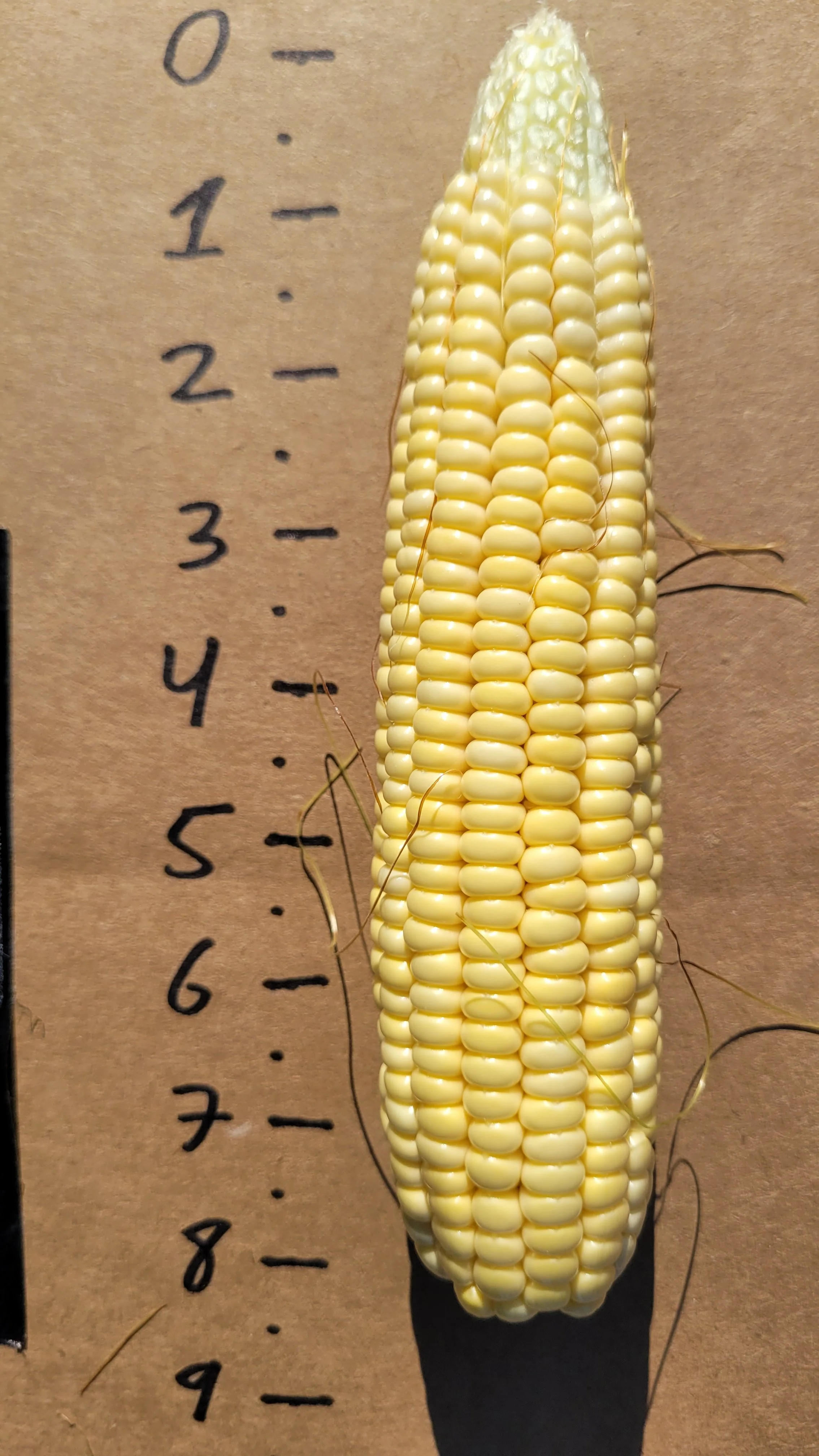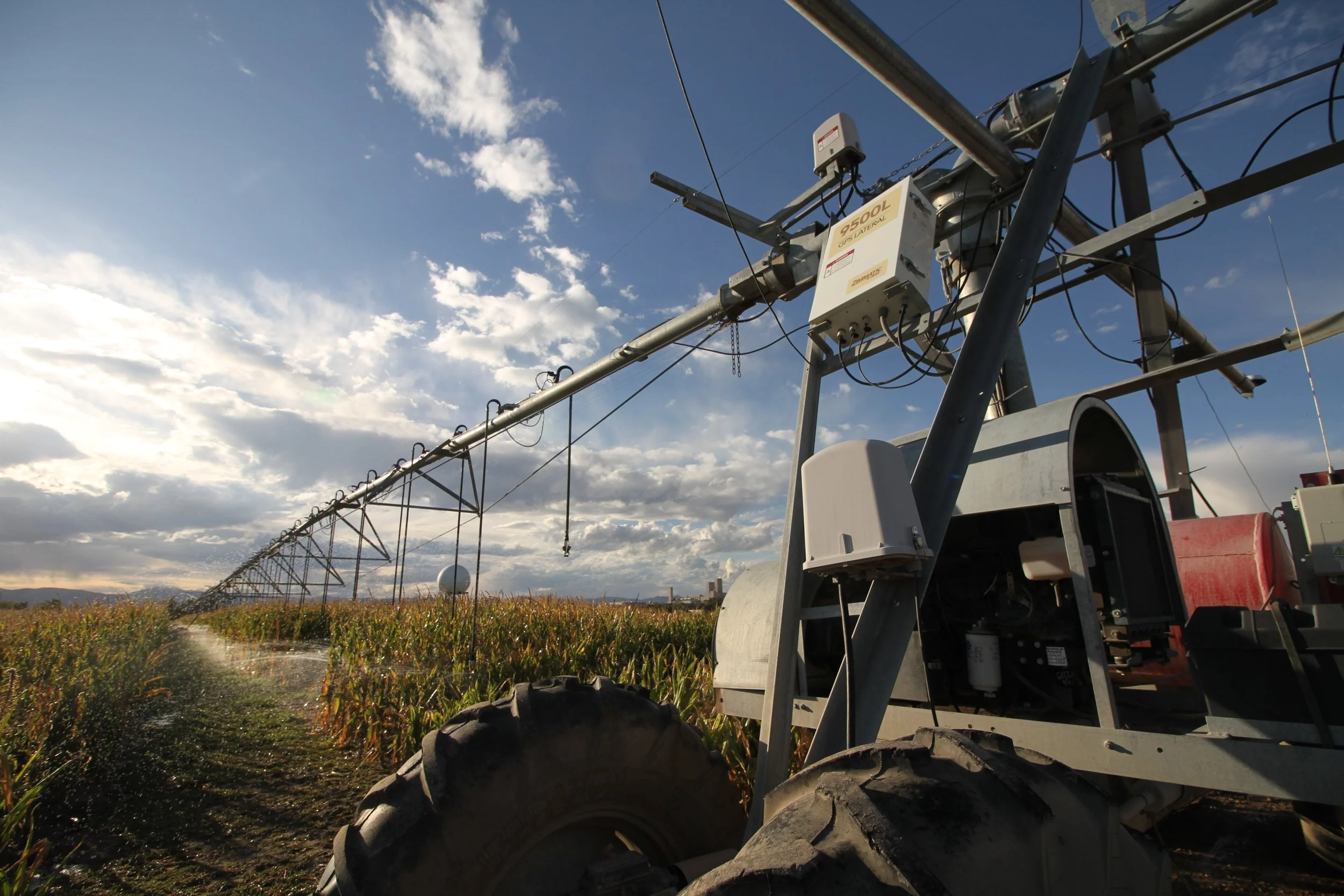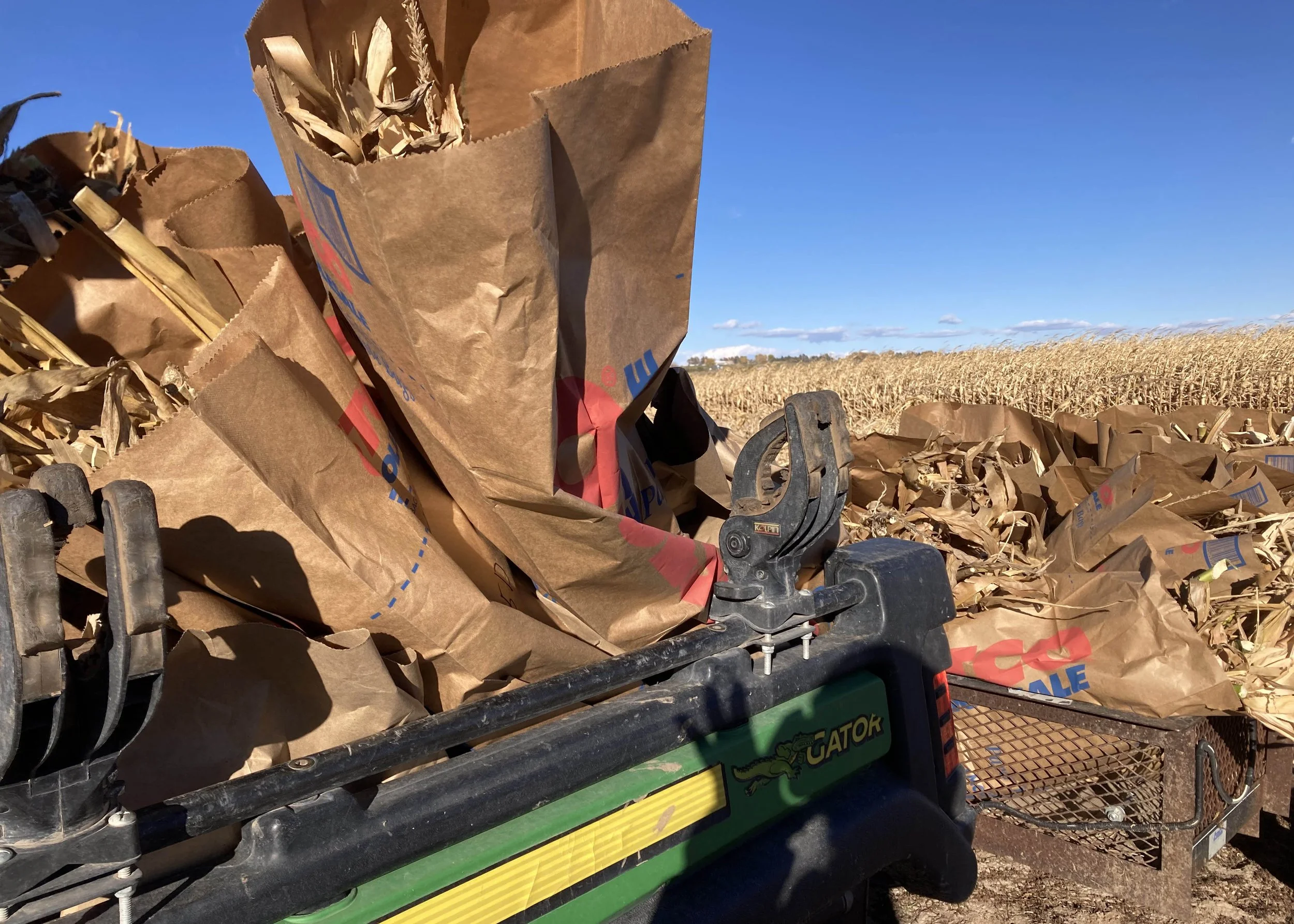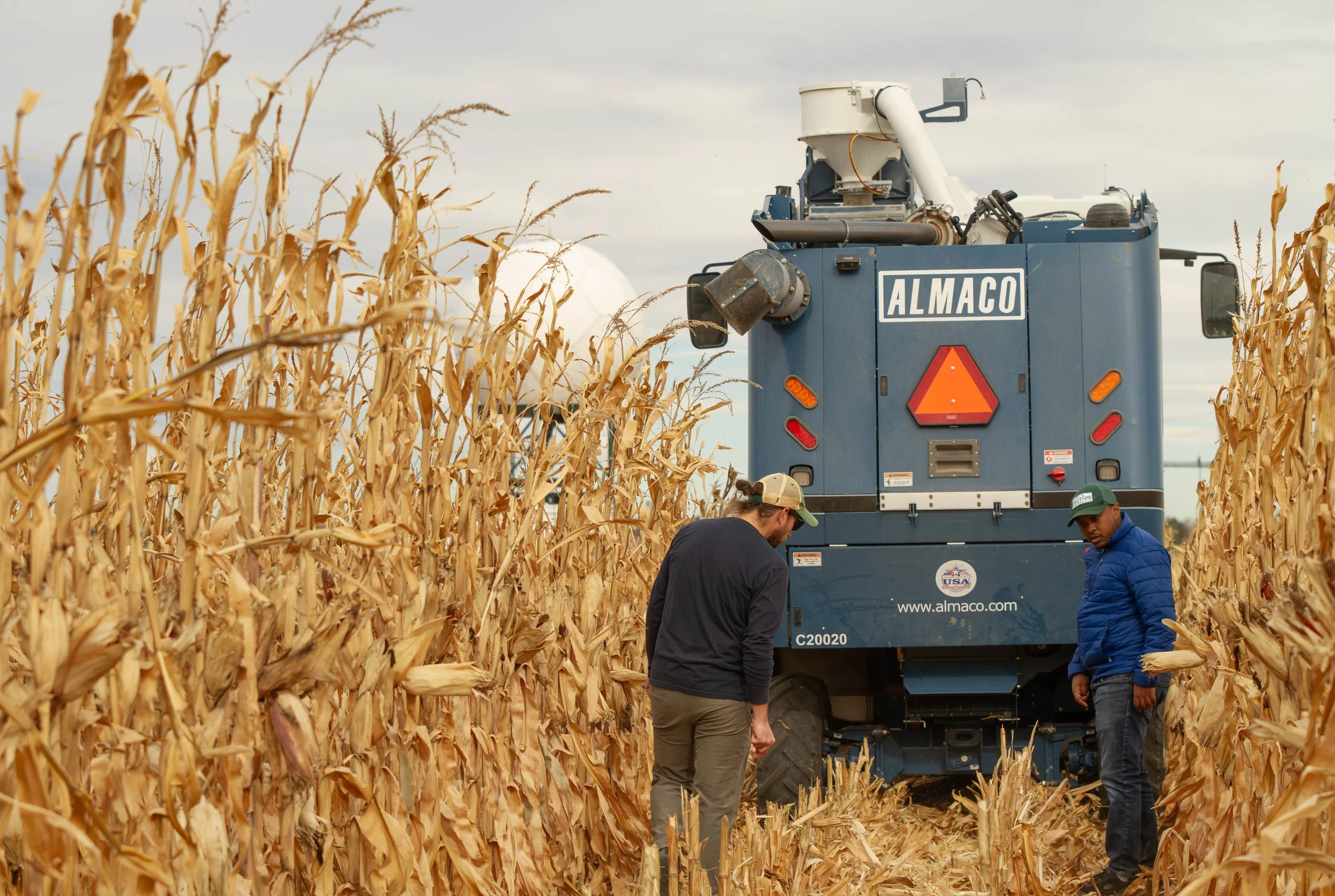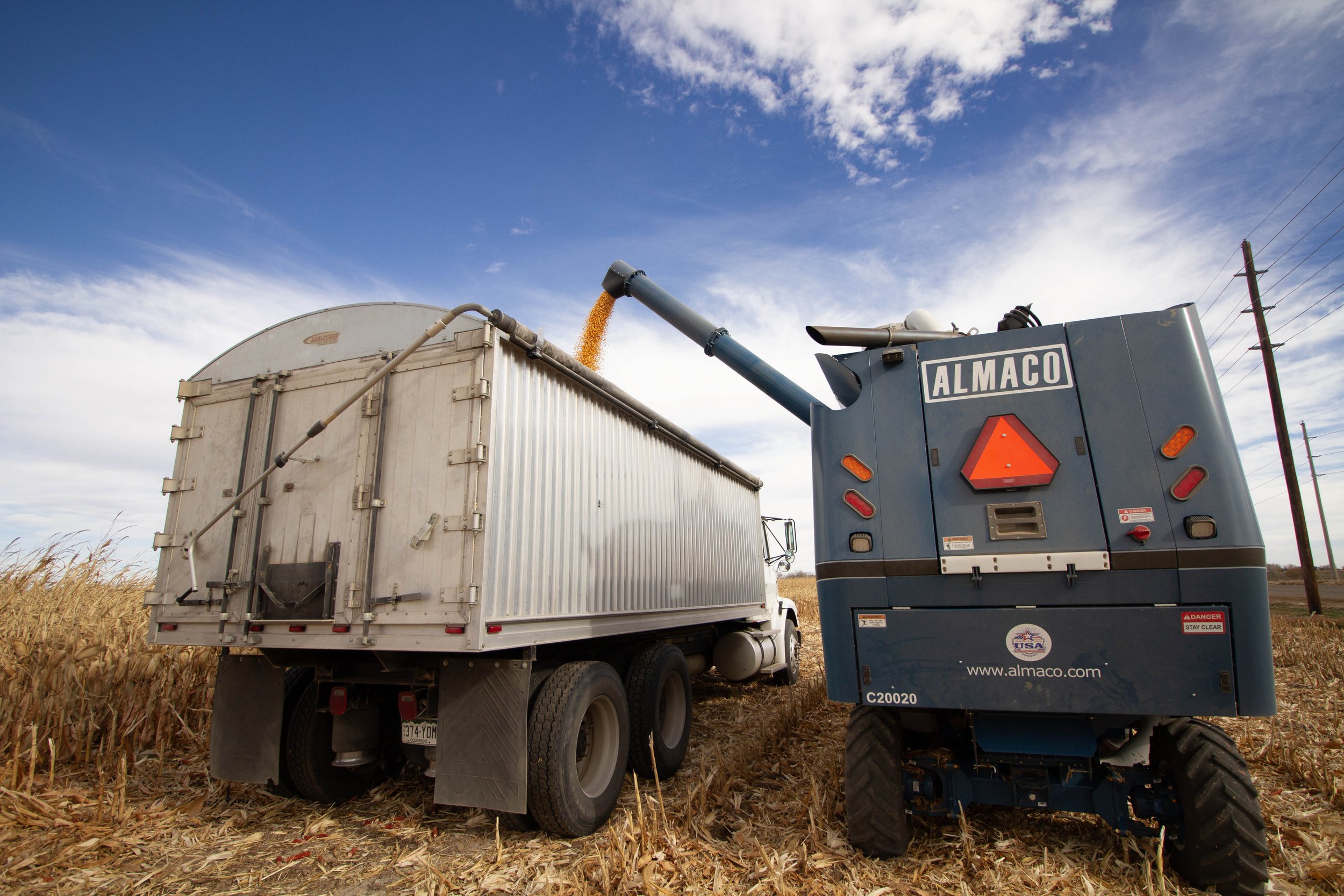Now recruiting for the 2026 CSU-TAPS competition!
Please complete this form if you are interested.
Advancing ag management skills and knowledge through a TAPS farm management competition!
Colorado State University Testing Ag Performance Solutions (CSU-TAPS) is hosted at CSU’s Agricultural Research, Development, and Education Center (ARDEC) research farm in Fort Collins, Colorado.
In TAPS, participants (competing as individuals or teams) make 6 management decisions throughout the growing season: selecting a corn hybrid, seeding rate, and crop insurance, irrigation and nitrogen amounts and timing, and marketing.
Each team’s decisions are implemented on randomized, replicated plots in the TAPS field that is equipped with a variable rate irrigation system that delivers water and nitrogen as fertigation according to team decisions entered on online competition portal. Teams include producers, commodity group representatives, seed dealers, state and federal agency staff, students, and more.
Teams are provided live field data on crop, weather, and soil conditions. Their challenge? To test strategies and tools and demonstrate their skill at effective decision making for profitable and input-use efficient precision farm management.
Find CSU-TAPS stories on the IIC news page!
Subscribe to the CSU-TAPS newsletter for updates.The CSU-TAPS 2025 Farm Management Competition Report has been released! Click on the cover to read.
2025 CSU-TAPS Competition Updates
The 2025 CSU-TAPS field on July 2, 2025, at CSU’s Agricultural, Research, Development, and Education (ARDEC) South facility, showing the Zimmatic linear move irrigation system, soil moisture sensors, and corn at V7 & V8 growth stages. Photo by Christine Hamilton
The 2025 field was planted on May 2! Good rain the next week gave the field a good start.
CSU-TAPS participants made their corn variety & seeding rate decisions by April 11. Their crop insurance and soil moisture sensor selections were due April 21.
Participants could begin making marketing decisions on March 28.
Team costs and returns are included in a comprehensive farm budget tool, available to each team, with values scaled to represent a crop grown on a 1,000-acre operation.
Results from competition field soil sampling in April allowed the CSU-TAPS crew to map soil management zones, and assign three random plots to each team. See the field layout at the ARDEC South research farm, below.
All team management decisions are implemented by CSU staff on their plots in the competition field.
Soil moisture sensor installation throughout the field was completed by May 23.
Irrigation began in June. Early on, teams could irrigate 1x/week, up to 1 in., in increments of 0.05”. In July, options changed to 2x/week, up to 1 in., or 1x/week up to 1.5 in. Starting in September, teams went back to irrigating once per week, with irrigation ending by the end of the month.
By the first week in July, the corn had reached V8 growth stage. On July 25, CSU-TAPS hosted a Field Day, welcoming folks to enjoy lunch, visits to field stations and plots, and competition updates. By August 25, the corn had reached the R3 growth stage.
Teams made nitrogen (N) decisions through the summer. The final N application was August 27.
The CSU-TAPS Field Day was July 25 at the ARDEC South CSU-TAPS field site. Thank you to all who came!
The last day of irrigation was September 29, and by the end of October, all sensors were removed from the field. The crew conducted biomass sampling on October 28 and 29. And harvest day was November 13!
Competitors made marketing decisions through November 28. After harvest, the CSU-TAPS team began data analysis to determine winners, which were finalized after marketing was done.
The celebratory 2025 CSU-TAPS Banquet was held January 10, 2026, where the competition participants were celebrated, the official report was released, and winners were announced.
CSU-TAPS Field Conditions
Weather Data:
Click here for CoAgMet weather station data based at ARDEC N, a few miles north of ARDEC S.
Click here for data from the “Fort Collins East” weather station managed by Northern Water located close to ARDEC S.
2025 CSU TAPS Year in Review —Click on images for captions.
Photos by Omer Izrael, Amy Kremen, Wub Yilma, Christine Hamilton, and CSU Agricultural Water Quality Program (AWQP)
2024 CSU TAPS Year in Review —Click on images for captions.
Photos by Omer Izrael, Amy Kremen, Christine Hamilton, and CSU Agricultural Water Quality Program (AWQP)
TAPS FAQ
Q: What is TAPS’s overall purpose?
To understand, value, and encourage advanced farm management skills
To gain knowledge needed to address critical water and ag sustainability challenges, in part through conducting cross-disciplinary, cutting-edge research
To support producers in testing and trusting a wide range of smart, conservation oriented ag management technologies and strategies
Q: What’s TAPS’s origin story? TAPS was developed by a phenomenal University of Nebraska team supported by producers, water managers, and others. The first TAPS competition was held in 2017 in North Platte, Nebraska.
Q: Are there other TAPS programs? Yes! CSU-TAPS is the newest installment of a growing network of active TAPS programs involving different crops (corn, sorghum, cotton, dryland wheat) in Nebraska, Kansas, Oklahoma, Florida, Alabama, and Maryland.
Q: Why doesn’t TAPS take place on my farm? TAPS levels the playing field with competitors’ decisions applied to multiple, randomized plots within the same field. These plots are managed by university staff, who gather and share field data with all competing teams (soil nutrient status, weather, remote and direct sensing of soil moisture and crop vigor, plot photos, etc.).
This format facilitates comparison of and investigation into which team’s sets of decisions turn out to be more productive, profitable, and/or input-use efficient, comparison that isn’t possible with on-farm programs and competition, given the variation in soils, weather and other factors from farm to farm.
Thanks to our participants, partners & sponsors!
Many kinds of partner contributions make CSU-TAPS possible. The Colorado Water Conservation Board and NRCS provide major support.

